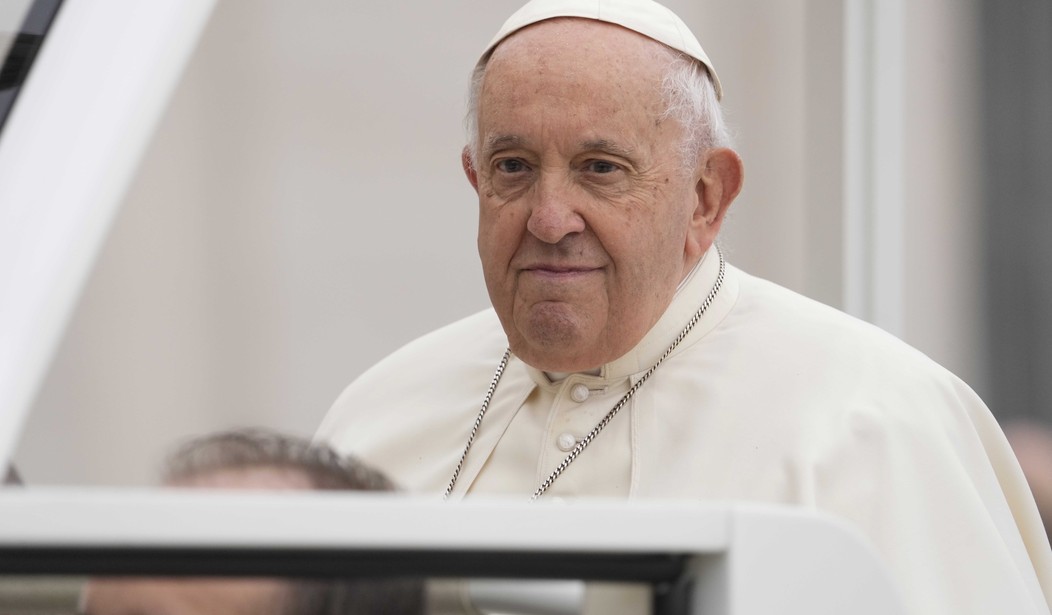As I write, thousands of families are searching for or waiting to hear about their loved ones who were, or might have been, swept away by the flooding brought by remnants of Hurricane Helene in North Carolina. With inadequate aid and delay in rescue missions, it might take weeks before we know the actual death count.
For those of us Christians in other parts of the country, or in my case other parts of the world, situations like these—especially during the hurricane season and summer fire season—make us compassionate and prayerful.
At the same time, we can also be exploited by the media to mislead us into making hasty conclusions about extreme weather and the role of humans in causing it. Even Pope Francis and the Archbishop of Canterbury have been repeatedly imploring Christians to “act” on climate change and to support the movement.
While we must mourn with those who mourn and be compassionate towards those in need of help, we should be careful to not give in to subverted brainwashing mechanisms aimed at creating a false sense of reality about climate change.
Abject Poverty, Compassion, and Godly Discernment
Travelling across the vast landscape of India as a child, I experienced hundreds, if not thousands, of instances of people asking for alms. The simple response for any Christian would be to give to them. For, as our Lord Jesus Christ says, any help we do to the hungry, naked, and homeless, we do unto Him.
However, the most challenging thing about those instances is discerning what is the right thing to do: To give money, or to help with food and shelter, or to take other action. Many will use the money to get drunk and abuse the family members. Even worse, some are made to beg on streets by organized gangs.
That’s why in many cases food, clothing, and shelter are better gifts than money. An increasing number of people even fund the education of children who can’t afford basic elementary education.
Recommended
Some people, though, most need not physical gifts—money, food, clothing, shelter, tuition for their children—but spiritual, moral instruction, beginning with the gospel’s call to repent and believe in Jesus Christ for forgiveness of sins and to receive God’s gift of the Holy Spirit to begin working in them for their sanctification. In other words, they need to become disciples, being taught to obey all of God’s commands (Matthew 28:18–19).
Though we love by helping them, we use God’s wisdom to help them in ways that truly uplift them from poverty and address their most pressing needs. Seldom would I know that the same principle of discerned compassion and action would be applicable in my professional field as an environmental researcher.
Do Not Be Carried Away with the “Popular Themes” on Environment
Like many kids in the 1980s and 1990s, I was taught at school that we humans are the evil cancer of the world, populating it to suffocation and destroying the ozone layer.
With the growth of claims of catastrophic, manmade global warming in the last three decades, environmentalism reached its peak, as the majority of the world was told that we are hurtling towards an inevitable climate doomsday. More pressing issues, like toxic air and water pollution, were sidelined, with climate change taking prominence among policymakers and lawmakers.
All this resulted in a skewed approach towards how we as God’s children view humanity, creation, and the interactions between the two. With Biblical foundations tossed out of public schools, Millennials, GenZ, and GenAlpha consumed the ideology of radical environmentalism.
Today, this ideological push has compromised humanity’s development needs, deprioritizing programs that address the immediate needs of billions who live in poverty. And it is at this instant when the aspect of godly discernment comes into the picture.
Climate Change is Nowhere Near a Biblical or Scientific Emergency
The global tropical cyclone accumulated energy index—a metric used to measure the intensity and activity of tropical cyclones and hurricanes—shows that the overall strength of global tropical cyclones has reduced since 1994.
Official data on U.S. hurricane strikes show that the decade 2011–2020 had just four major hurricane strikes, the second lowest decadal count since 1851. Further, there has been no perceivable increase in major hurricane strikes during the past few decades.
Anthropogenic additions to greenhouse gases have reduced the climate system’s ability to cool Earth’s surface by about 1 percent compared with pre-industrial times. Assuming comparable impact on extreme weather, like hurricanes, at most about 1 percent of wind speed and precipitation would be attributable to those emissions.
So, for instance, with Hurricane Helene, those emissions would have accounted for, at most, about 1.4 mph out of the 140 mph maximum sustained windspeed when it made landfall in Florida. Whateverdamage wind was going to do would have been done by the first 138.6 mph, with little left to the remaining 1.4.
Likewise with Helene’s rainfall. The storm dropped about 14 inches on Asheville, NC, but at most about 0.14 inch could be attributed to anthropogenic greenhouse gas emissions.
As if that weren’t enough to calm catastrophist claims, it is entirely possible that greenhouse gas-driven global warming should reduce, not enhance, the power of hurricanes. Why so? Earth’s climate system is essentially a vast heat engine, moving heat from place to place—most importantly, from equator (most warmed by sunlight) to poles (least warmed by sunlight). The greater the temperature gradient from equator to poles, the more heat needs to be moved from one to the other.
But greenhouse gases’ warming effect is far stronger toward the poles than near the equator, reducing that temperature gradient and thus reducing the climate system’s need to move heat from equator to poles—which is what hurricanes do. So global warming might actually have made Helene weaker than it otherwise would have been, not stronger. Indeed, it might also have contributed to the low hurricane count of 2011–2020 just mentioned.
These revelations stand in stark contrast to the mantra of the age, which often blames human use of fossil fuels for aggravating extreme weather events like hurricanes. Surprisingly, the case is the same when we inspect other extreme weather events like wildfires, droughts, etc.
So, as Christians we must be watchful and vigilant whilst we are carrying out the great commission of Christ. One small misjudgment—enforced by the constant barrage of clamor from the media and politicians—can distract us and rob us of our precious time, energy, and resources.
Environmental care and the stewardship of creation are important aspects of our Christian walk, but we must delineate it from politically charged pseudo-scientific agendas like climate crisis that have no scientific basis for their doomsday claims.
Vijay Jayaraj is a Science and Research Associate at the CO2 Coalition, Arlington, Virginia. He conducted pre-doctoral work in climate science at the University of British Columbia and holds a postgraduate degree in energy management from Robert Gordon University, an M.S. in environmental sciences from the University of East Anglia, both in the U.K., and a B.S. in engineering from Anna University, India. He wrote this article for the Cornwall Alliance for the Stewardship of Creation.

























Join the conversation as a VIP Member